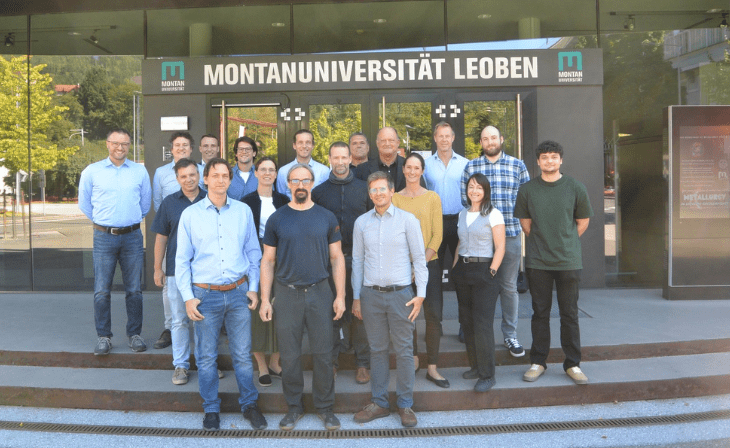PHOBOS project launch
New approaches to sustainable phosphorus recovery: A kick-off meeting at the Montanuniversität Leoben (Technical University of Leoben) marked the start of the PHOBOS research project – phosphorus recovery and binder provision as an economical material recycling process. The PHOBOS project is funded by the Austrian Research Promotion Agency (FFG) as part of the FFG call for proposals “Raw Materials 2024.” Under the leadership of Dr. Zlatko Raonic, a team from the University of Leoben consisting of Dr. Klaus Doschek-Held, Dipl.-Ing. Christoph Gatschlhofer (Chair of Thermal Process Engineering) and Assoc. Prof. Johanna Irrgeher as well as Shaun Lancaster, PhD. (Chair of General and Analytical Chemistry) is working on the implementation of the project. The research project aims to contribute to the reduction of CO₂ emissions, promote the sustainable supply of the strategic raw material phosphorus, and enable cost savings in the building materials industry.
PHOBOS is dedicated to the thermal recovery of sewage sludge (SS) and therefore offers a recycling option for waste materials that were previously sent to landfill – in line with the principles of a holistic circular economy. The process of thermochemical phosphorus recovery is carried out in an inductively heated fluidized bed reactor, in which phosphorus is recovered from sewage sludge ash (SSA) and sewage sludge charcoal (SSC). The combined use of these residual materials enables defossilized process control and pursues a clear zero-waste approach.
Research with high industrial applicability
In addition to phosphorus, thermal sewage sludge recycling also allows a mineral fraction and an iron-rich fraction to be recovered. The high industrial applicability that characterizes the streams of recyclable materials produced is also particularly noteworthy. The recovered phosphorus can be used as a raw material in the fertilizer industry, for example. The mineral fraction, on the other hand, can be used as a reactive binding agent component in the building materials industry, among other things. The iron-rich fraction can be used to produce a precipitating agent in order to establish a closed iron cycle and thus increase efficiency and sustainability in wastewater management.
The project is being carried out in close cooperation with industry and research partners from fields such as wastewater management, incineration, and pyrolysis technology—in line with the principles of cross-sector circular economy.
Strengthening national raw material availability
The project thus forms the basis for the industrial scaling of a sustainable technology that reduces dependence on phosphorus from primary raw material sources, strengthens national raw material availability, and therefore goes beyond the current state of the art.
Further information on the project can be found at: https://projekte.ffg.at/projekt/5138969
Contact
Dipl.-Ing. Dr.mont. Zlatko Raonic
Chair of Thermal Process Engineering
Montanuniversität Leoben
Tel.: +43 3842/402-5807
Email: zlatko.raonic(at)unileoben.ac.at
[Source: Montanuniversität Leoben, October 16, 2025]


